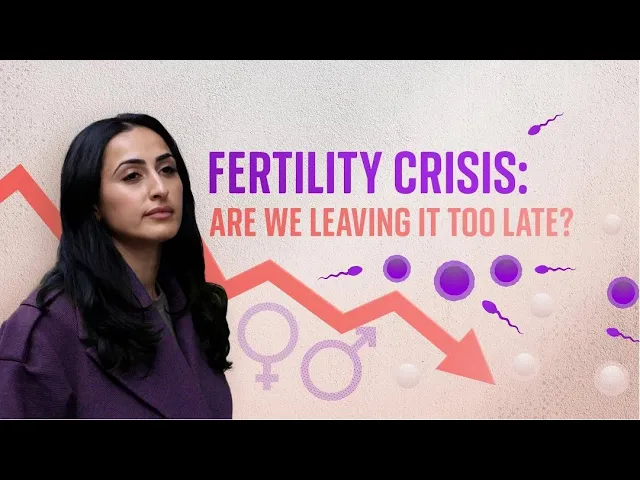The Global Fertility Crisis: Insights and Personal Stories

This article delves into the pressing issue of declining fertility rates worldwide, the societal pressures faced by individuals, and personal experiences that highlight the complexities surrounding reproductive health. Understanding both men’s and women’s roles in fertility discussions is crucial in addressing this growing concern.
Introduction
As individuals approach their 30s, societal expectations often shift dramatically, with many facing the pressure of settling down and starting a family. This phenomenon, often referred to as the ‘biological clock,’ becomes a common topic of conversation. However, the reality is that fertility rates are declining globally, with approximately one in six individuals affected by infertility according to the World Health Organization. This article explores the implications of these trends, particularly focusing on how they affect both women and men, while also sharing personal narratives that shed light on the emotional and social aspects of infertility.
The Decline of Fertility Rates
Fertility rates have seen a significant drop over the decades. In the 1950s, the average woman had five children, a number that has halved in the current era. By 2050, it is predicted that over 75% of countries will not maintain fertility rates high enough to sustain their population sizes, with this figure increasing to 97% by 2100.
Historical Context
The shift in childbearing age is notable, with many women now having their first child at an average age of 32. In comparison, the common age for childbirth in the 1950s was in the early 20s. This change reflects broader societal transformations, including increased access to education and career opportunities for women.
Societal Pressures and Stigmas
Despite advancements in reproductive health, societal expectations often place undue pressure on women. The stigma surrounding infertility is disproportionately directed at women, while men’s roles in fertility discussions are often overlooked. This imbalance highlights the need for a more equitable approach to understanding and addressing infertility.
Understanding Fertility: Women’s and Men’s Perspectives
Infertility is not solely a women’s issue. Both genders experience reproductive aging, and about one-third of fertility problems are attributed to male factors. Men’s fertility begins to decline after age 40, often without the same societal acknowledgment or support as women.
The Biological Clock: A Shared Concern
While women are often told to monitor their egg reserves and consider options like egg freezing, men may remain unaware of how lifestyle factors, such as alcohol consumption and exposure to toxins, can impact their sperm quality.
Challenges in Addressing Infertility
- Stigma surrounding male infertility
- Limited awareness among men about their reproductive health
- The need for comprehensive fertility evaluations for both partners
Personal Narratives and Experiences
Individual stories reveal the emotional weight and complexities surrounding infertility. Charlene, a 31-year-old living with endometriosis, shares her experience of feeling pressured by societal expectations despite not actively trying to conceive. Her journey through fertility checks highlights the role women play in discussions about reproductive health.
Case Study: Kieran and Sha
Kieran and Sha’s story illustrates the often-overlooked male perspective on infertility. After Kieran was diagnosed with low sperm count, they launched a podcast to raise awareness and break the stigma surrounding men’s fertility issues. Their journey emphasizes the importance of addressing both partners’ health in the quest to conceive.
Nutrition and Lifestyle Changes
Research indicates that lifestyle choices can significantly impact fertility. Kieran focused on improving his diet and overall health, which led to a notable increase in his sperm count. Here are some lifestyle changes that can enhance fertility:
- Reducing alcohol intake
- Incorporating more fruits and vegetables into the diet
- Regular physical activity
- Stress management techniques
Conclusion
The global fertility crisis presents a complex challenge, intertwining biological, social, and emotional factors. As individuals navigate the pressures of starting a family, it is essential to recognize that infertility affects both men and women. By fostering open discussions and increasing awareness about reproductive health, society can better support those facing fertility challenges.
If you or someone you know is experiencing difficulties conceiving, consider reaching out to a fertility specialist for guidance and support. Understanding your options, including lifestyle changes and medical interventions, can empower you on your fertility journey.
“`




